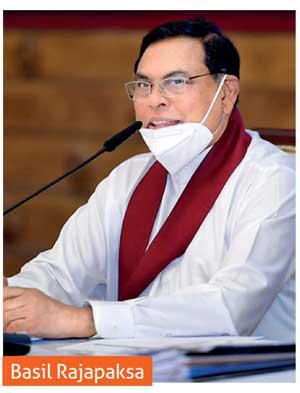Reply To:
Name - Reply Comment
The membership of the Ceylon Chamber of Commerce (CCC) yesterday expressed serious concerns on the provisions of the Surcharge Tax Bill that has been gazetted recently to implement the budget proposal on same.
In its immediate reaction to the budget as conveyed by the post-budget release to the media and in numerous post-budget forums the chamber leadership participated, the CCC had highlighted the impact the retrospective taxes would cause on investor confidence.
 “After receiving several member proposals, the chamber, with the guidance from its Taxation Steering Committee, made specific recommendations to the Finance Minister with regards to this proposal. The chamber highlighted the retrospective tax to be arbitrary in nature while raising the issues of marginal relief and double taxation on the dividends of group companies.
“After receiving several member proposals, the chamber, with the guidance from its Taxation Steering Committee, made specific recommendations to the Finance Minister with regards to this proposal. The chamber highlighted the retrospective tax to be arbitrary in nature while raising the issues of marginal relief and double taxation on the dividends of group companies.
The chamber is pleased to note that the concern with regard to double taxation on dividends has now been addressed. However, other concerns unfortunately have not been taken note of,” a CCC statement said.
It also said the CCC provided many alternative recommendations for the implementation of the Surcharge Tax by considering either an income tax surcharge of 10 percent from all taxpayers,
an income tax surcharge at varying rates, depending on the level of income, credit to be carried forward for paying the one-off tax or the imposition of the tax on a prospective basis. “Any of these alternatives could have raised the targeted revenue while minimising the burden on the private sector during this extremely challenging period in the country,” the statement pointed out.
Further, the CCC in its representations had specifically requested to avoid application of the Surcharge Tax at group level, considering its unfair impact on smaller subsidiaries and minority shareholders.
“This method of application at group level could be a serious deterrent to local and foreign investors, who consider entering into joint ventures with large conglomerates,” the statement said. “Therefore, the Ceylon Chamber of Commerce earnestly requests the government to reconsider some of these provisions before it is submitted for approval by Parliament and extends its support to develop alternative proposals to ensure the revenue targets are met,” it added.
Although the CCC statement made no reference to it, the Surcharge Tax Bill has run into a fresh controversy with the unintended inclusion of the Employees’ Provident Fund (EPF), Employees’ Trust Fund (ETF) and other superannuation schemes and pension funds.
At the time proposing this tax by Finance Minister Basil Rajapaksa, he said it would apply to only 62 high-value taxpayers and there was no mention about the EPF, ETF or any other pension funds.
However, the bill has defined the companies subject to this tax in accordance with the definition in the new Inland Revenue Act. Under Inland Revenue Act No. 24 of 2017, the definition of a company was expanded to include provident fund, pension fund, pension gratuity fund or a similar fund.